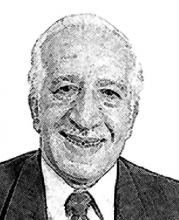You are here
Loss of hope, gain for terrorism
Oct 25,2014 - Last updated at Oct 25,2014
When King Hussein signed, 20 years ago, the peace treaty with Israel, he had great hopes for the region and the Arabs.
He was anticipating an end to the Likud slogan that Jordan is an alternative homeland for the Palestinian people while historical Palestine would remain ethnically Jewish.
Many Jordanians were hoping that a genuine state of peace would bring an end to the multi-layered ramifications of the refugee problem.
Peace, they thought, would generate hundreds of thousands of job opportunities to satisfy the demand of strategic joint ventures like the Red Sea-Dead Sea hydraulic power plants, potash developments, phosphate mega treatment and irrigation projects.
The Med-Dead project was another item on the agenda of mutual cooperation.
But there were other parameters for the King’s vision, since he hoped to have human beings as the primary building block in a prosperous Middle East.
It was the hope of mutual coexistence and warm friendship, similar to the one between France and Germany as it is today, following years of bloodshed and misery during World War II.
The Israeli expertise in cultivating the desert and rehabilitating the barren valleys would be greatly needed in an atmosphere of peaceful relations when Palestinians, Jordanians and Israelis plan for joint industrial and agricultural ventures.
Next to King Hussein, at Wadi Araba on October 26, 1994, was Israeli Prime Minister Yitzhak Rabin, who was also anticipating a new, prosperous and tranquil Middle East where all people would have the same hopes and aspiration that citizens in the European Union cherish.
But an assassin’s bullets a year later, on November 4, 1995, prevented Rabin from working for peace with four Arab states, including Syria.
Now, Israeli Prime Minister Benjamin Netanyahu’s policies in Gaza and vis-à-vis Al Aqsa Mosque succeeded in killing all hopes for a region where future generations would live in peace, prosperity, dignity and happiness within a supra-structure of a multilingual, multifaith, multiracial Middle East.
The translation of King Hussein’s vision and hope for the new generations in our region into tangible facts on the ground would have eradicated the roots of terrorism and saved thousands of lives in Iraq, Syria and elsewhere in the region.












